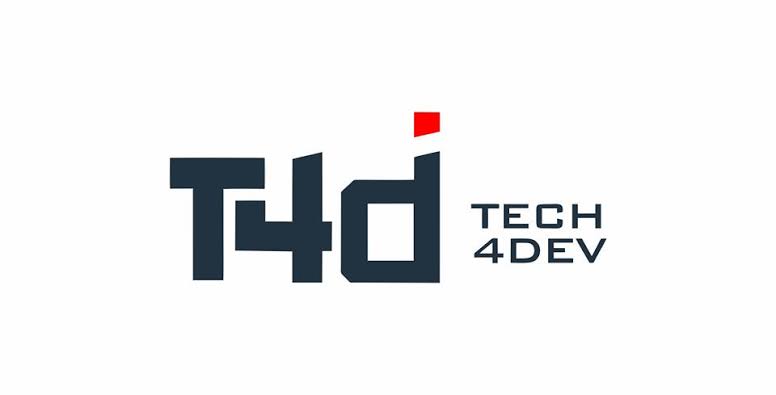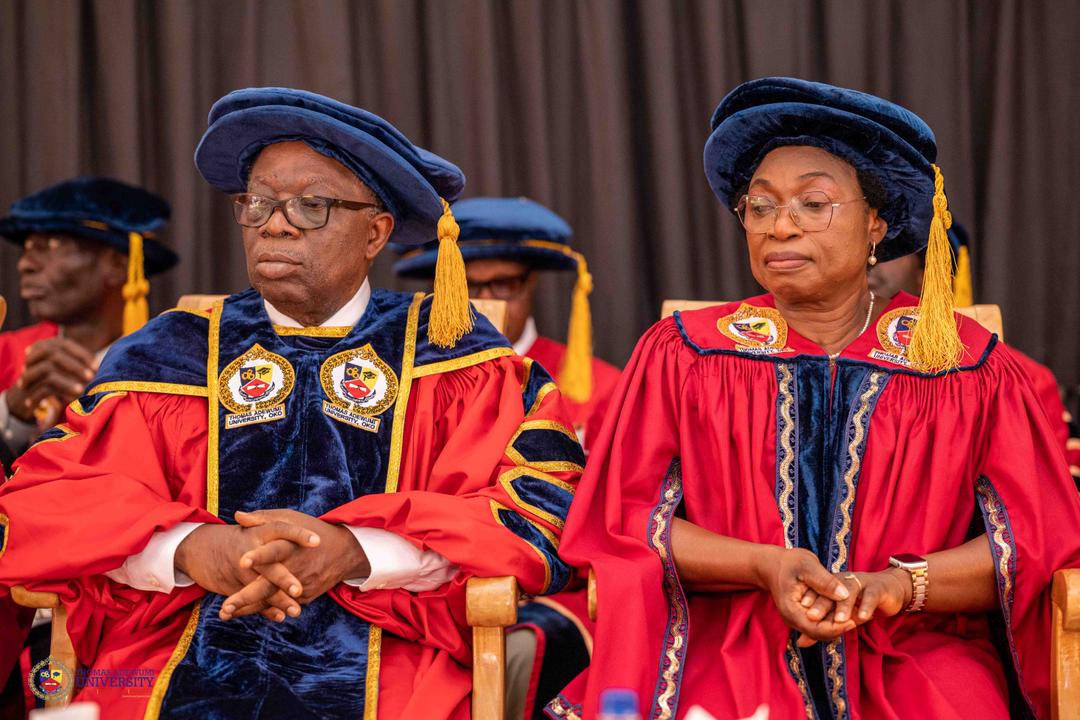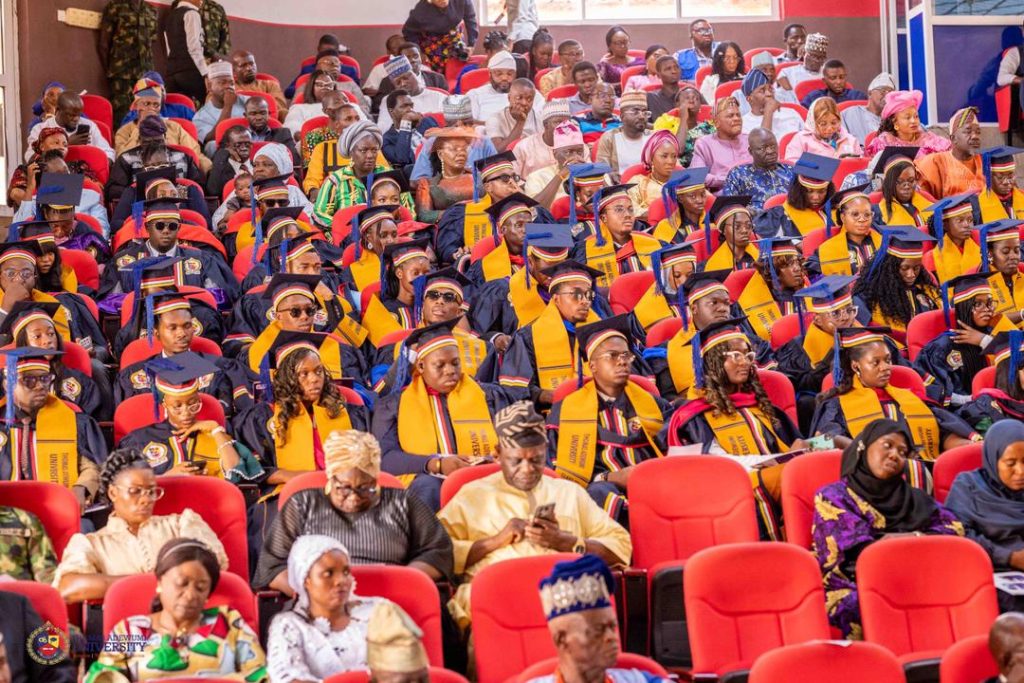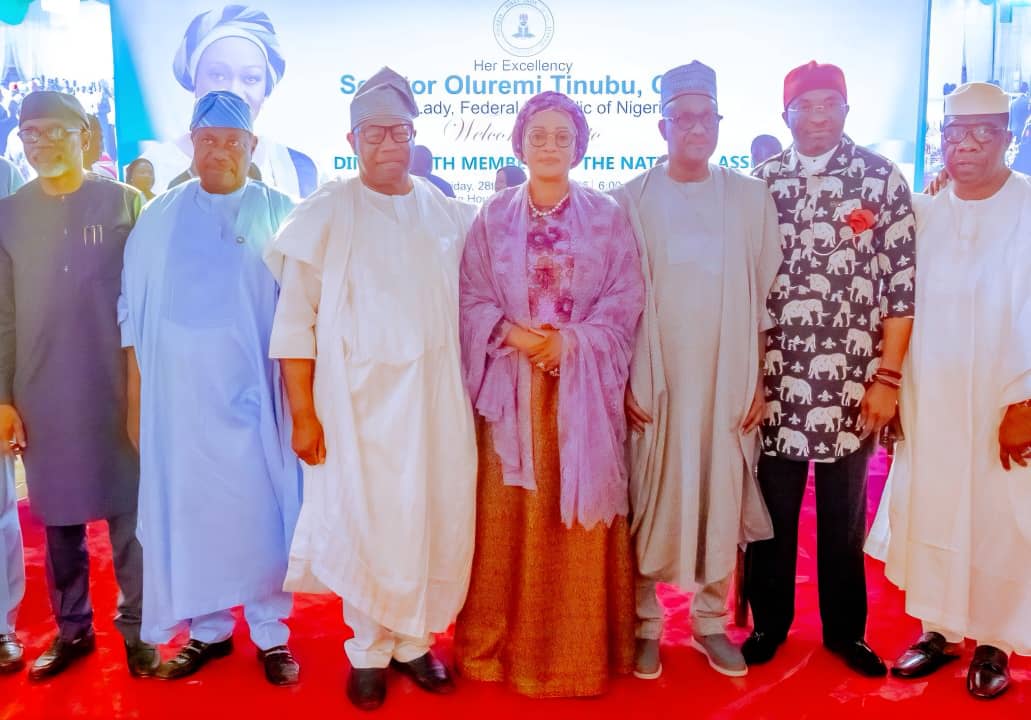Uncategorized
Tech4Dev, Commonwealth Office partner to train 1000 on digital literacy in Northern Nigeria

Technology for Social Change and Development Initiative (Tech4Dev), an NGO, says it has partnered with the Foreign, Commonwealth and Development Office (FCDO) on digital literacy training in Northern Nigeria.
Diwura Oladepo, Executive Director at Tech4Dev, told a virtual conference on Tuesday in Lagos that the initiative was designed to directly impact on 1,000 beneficiaries over a 12-week period in 10 rural clusters across 10 states in Northern Nigeria.
She said 50 per cent of the beneficiaries would be vulnerable women and girls (aged 8 -18, 45-65), 30 per cent of Persons with Disabilities (PWDs), while 20 per cent would come from other vulnerable groups.
Oladepo said the partnership was part of efforts to empower vulnerable groups in the rural clusters of Northern Nigeria with digital skillset required for the future of work and advanced learnings in the 21st century.
The Executive Director said this would help in closing the digital skills gap needed in the digital economy.
“It has become pertinent, especially on the path of the new normal, to focus on digital literacy allowing vulnerable populations to leverage on technology for commerce, education and communication.
“Digital literacy is also essential to improve their socio-economic recovery, pandemic resilience and build a more prosperous future,” Oladepo said.
According to her, the programme is meant to introduce learners in underserved communities and vulnerable groups in Northern Nigeria to digital literacy.
“This is with the intent of equipping them with the basic digital knowledge required to succeed in the 21st-century and the emerging new normal from the COVID-19 pandemic.
“The Basic Digital Literacy for Rural Clusters in Northern Nigeria programme aligns with the Sustainable Development Goals one, four and 10 (No Poverty, Quality Education and Reduced Inequalities),” she said.
She said that investing in digital literacy for vulnerable people living in rural clusters in Northern Nigeria would reduce the poverty index by increasing employability of the beneficiaries.
Mr Idongesit Udoh, Head, UK Government’s Digital Access Programme and Country Adviser, said Nigeria’s National Broadband Plan, Economic Sustainability Plan and Nigeria’s Digital Economy Strategy have identified digital skills as key economic prosperity for Nigerians.
He said that with COVID-19, digital literacy has become a must-have, adding that the UK Government was once again demonstrating timely support not only for Nigeria’s inclusive economic development but building effective COVID-19-related resilience.
Udoh said the project was already helping to close the digital divide, enabling inclusive digital access and building communities’ resilience to current and future pandemics.
“According to the International Finance Corporation (IFC), about 230 million jobs in Sub-Saharan Africa will require digital skills by 2030.
“This figure is due to increase with the use of technology and automation of jobs,” he said.
Our correspondent reports that Technology for Social Change and Development Initiative (Tech4Dev), a non-profit organisation founded in 2016 to empower African communities with digital skills that will bridge the gap of unskilled labour needed for the future of work.
Uncategorized
TAU reaffirms commitment to globally competitive learning

- As 16 graduands make First Class
Stephen Olufemi Oni, Ilorin
The Thomas Adewumi University (TAU), Oko-Irese, in the Irepodun local government area of Kwara State, has reaffirmed its commitment to strengthening quality education, innovation, and globally competitive learning.

Speaking at the institution’s 2nd Convocation ceremony in Oko-Irese, the Vice Chancellor of the University, Professor Francisca Onaolapo Oladipo, said TAU is living up to its ranking as the fastest growing institution in Science, Technology, Engineering, Medicine, and Innovation (STEM-i) ecosystem by surpassing more than 100 percent in its number of graduating students at the second convocation.
She said: “TAU emerged on April 8, 2021, as Nigeria’s fastest-growing Science, Technology, Engineering, Medicine and Innovations (STEM-i) ecosystem. Today, we rank 1st among the 20 private universities that were licensed in
2021, 4th among the 14 Universities in Kwara State, 5th among Nigeria’s over 170 private Universities and 50th nationally, an impressive rise reflecting our unwavering commitment to excellence.
”What a Moment of Extraordinary Significance today, we stand at a crossroads far more significant than words can adequately capture. Exactly one year ago, we gathered at this very Auditorium to celebrate our inaugural Convocation, a ceremony that marked the graduation of 26 pioneering students who dared to believe in a vision when others saw only impossibility. Those 26 trailblazers proved that Thomas Adewumi University was not just a dream, but a reality rooted in excellence. Today, as we honour 63 outstanding graduates, we witness something far more profound than numerical growth.
“This 142% increase in our graduating class is not merely a statistic to be recorded in annual reports, it is a declaration that Thomas Adewumi University has transcended the realm of promise and entered the domain of proof.
“We have moved from potential to performance, from aspiration to achievement, from vision to velocity.
This year, 63 graduands from 4 Faculties and 11 academic programmes are being conferred. It is noteworthy that we have 16 First Class graduates, 40 in Second Class Upper Division, and 7 in Second Class Lower Division. These results reflect the quality of training and mentorship provided at Thomas Adewumi University, and we are proud to contribute these innovators to both the Nigerian and global workforce, confident that they will make a meaningful
impact.
”Preparing Globally Competitive Graduates, these 63 graduands are not merely degree holders, they are comprehensively prepared global professionals equipped with exceptional advantages that set them apart from their peers nationwide. Through our international partnerships, these graduates have obtained additional microcredentials from MIT, Harvard, Stanford, Columbia, Berkeley, and Yale, world-class certifications from Alison, UK, RUDN professional University, Russia, World Bank’s Saylor Academy, Google, ICAN, and the Global Partnership for Sustainable Development initiatives in Data Science and Artificial Intelligence.
“Our Coursera collaboration provided them with additional industry certifications, while partnerships with Microsoft, IBM SkillsBuild, and MIT OpenCourseWare through our Global Campus initiative democratize access to cutting-edge knowledge. They are thus fully equipped to embark on meaningful and innovative careers in today’s technology-driven world.”
Earlier in his Convocation Lecture, titled “Crowdfunding Opportunities forstartups: Equiping Nigerian graduates for a sustainable future”, Dr. Bayo Williams Olugbemi charged the graduads on the mindset of job creation, saying “as a graduate, your future is not defined by what Nigeria gives you, but by what you create. The idea of crowdfunding is the idea of hope. It is proof that when people come together, ideas once impossible become achievable.
“I urge you not to think only about searching for jobs. Instead, think about creating value, and if capital is a barrier, remember: “The crowd can be your first investor.”
In his goodwill message, the Executive Secretary of the National University Commission, Professor Abdullahi Ribadu, represented by Esther I. Eyo, Esq commended the resilience of TAU management said “NUC acknowledges TAU sustained progress in advancing quality teaching, impactful research, innovation, and community engagement, all of which align with our national aspiration for a globally competitive and knowledge-driven university system.
“It would interest you to know that, in the accreditation exercise conducted in 2023, Thomas Adewumi University achieved a 100% Full Accreditation status across all programmes assessed a laudable feat that reflects the University’s strong commitment to maintaining high academic standards.”
Also speaking, the Founder/Chancellor of the institution, Dr. (Engr) Johnson Adewumi, urged the graduands to be good ambassadors of the University, adding: “Remember that your degree is not an end but a beginning, go forth with courage, humility, and a sense of responsibility. Strive to illuminate whatever space you occupy with the light of integrity, excellence and service.”
Highlight of the event was the conferment of an honorary doctorate degree on two distinguished personalities; Engr Oluseyi Afolabi and Pastor Oladokun Olatunde.
End
Uncategorized
photo

L-r Speaker, House of Representatives, Tajudeen Abbas; President of the Senate, Godswill Akpabio and Nigeria’s First Lady, Senator Oluremi Tinubu, during the dinner for members of the National Assembly by the First Lady yesterday. Photo: Senate President’s Office.
Uncategorized
JUST IN: Even Tinubu moves with too many police escorts – Senator Ndume

By Hassan Taiye
Senator Ali Ndume has criticised what he described as the excessive use of security convoys by top government officials, including President Bola Tinubu, warning that the practice leaves ordinary citizens exposed and vulnerable.
Speaking on Politics Today on Channels Television on Thursday, Ndume said many public office holders move with security details that are unnecessarily large, even when their positions do not warrant such heavy protection.
He recalled visiting the residence of a colleague and finding “more than 10 policemen” attached to him, despite the lawmaker being junior to him in the National Assembly.
Ndume further argued that the presidential convoy itself is excessively large, stressing that security efforts should be focused on protecting the overall environment rather than individual personalities.
He said: “I went to one of my colleagues’ house for dinner. And I saw more than 10 policemen. He is even my junior in the National Assembly. Some of them, if you see them coming, you will pull back thinking that maybe it’s the President or the Vice President that is coming.
“
You can see even the president, the convoy that the president goes about with is too much. Secure the place and when the president goes, you withdraw. Secure Abuja and the president can even drive out, you know, himself.
But when you secure personalities, and this is what is happening in Nigeria, then others, common people, as we call them, become vulnerable, and we don’t care. So if you secure Abuja, then you can drive at night. And let me tell you, this is what is happening in most countries”.
The lawmaker’s comments come just days after President Tinubu ordered the withdrawal of police officers from VIP escort and guard duties.
In a statement, the Special Adviser to the President on Information and Strategy, Bayo Onanuga, said the directive was aimed at redeploying police manpower to core law enforcement responsibilities.
-

 Uncategorized5 years ago
Uncategorized5 years agoFG, states urged to harness flooding for ranching, others with technology – Agbaje
-

 Headlines10 years ago
Headlines10 years agoBreaking: EFCC seals Borno House of Assembly, as Hon members take to their heels
-

 News11 years ago
News11 years agoNigeria Security Operatives Stage Manhunt For Homosexual Perpetrator
-

 News9 years ago
News9 years agoHow 21-year-old Girl fled community over accusation of lesbianism
-

 News10 years ago
News10 years agoYobe Gov Moves Against Deputy
-

 Opinion7 years ago
Opinion7 years ago7 signs she has friend zoned you
-
Technology4 years ago
Online job placement company headhunts women
-

 Headlines10 years ago
Headlines10 years agoBorno Dep Gov Abducts Another Church Leader





